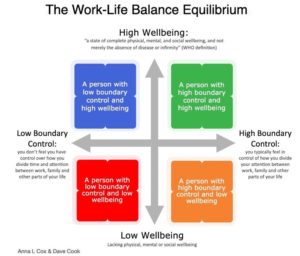As someone who has experienced the detrimental effects of neglecting work-life balance on my own mental health, I feel compelled to shed light on this crucial issue. In today’s fast-paced world, where the lines between work and personal life have become increasingly blurred, finding balance is more important than ever. The constant pressure to keep up with work demands and the fear of falling behind can take a toll on our mental well-being. In this blog post, we will explore the impact of work-life balance on mental health, share personal anecdotes, and provide practical tips to attain a healthier equilibrium.
When I reflect on my own journey, I can vividly recall how my mental health suffered due to an imbalanced lifestyle. During a particularly demanding period at work, I found myself perpetually exhausted, constantly battling anxiety, and feeling overwhelmed by a never-ending to-do list. I had little time or energy for activities that brought me joy and gave me a sense of purpose beyond work. Slowly, I noticed the decline in my mental health, which further impacted my overall well-being.
Researchers have shown that a lack of work-life balance negatively affects mental health and increases the risk of various mental health disorders such as depression, anxiety, and burnout. When work becomes all-consuming, it leaves little room for self-care and nurturing personal relationships. The strain on our mental health becomes apparent when we start neglecting our physical health, experiencing difficulty sleeping, and feeling a constant sense of stress and unease.
One of the key contributors to an imbalance between work and personal life is the encroachment of technology. The advancements in communication tools have made it easier for work to infiltrate our personal space. Emails, phone calls, and messages from coworkers can find their way into our personal time, leaving little room for relaxation and disengagement from work-related stressors. The never-ending notifications can make it challenging to truly disconnect and recharge, further fueling the negative impact on our mental well-being.
So, how can we strive for a healthier work-life balance to safeguard our mental health? Let’s explore some practical strategies that have been proven effective.
Firstly, it is crucial to set boundaries. Establish designated times for work and personal activities, ensuring they do not overlap. Communicate these boundaries explicitly with coworkers and superiors, so they understand your limitations and respect your personal time. By distinctively separating work from personal life, you create space for relaxation, hobbies, and spending quality time with loved ones.
Secondly, prioritize self-care. Schedule time for activities that rejuvenate and uplift you, whether it is exercising, reading, practicing mindfulness, or pursuing a hobby. Self-care is not a luxury but a necessity, and by prioritizing it, we can replenish our energy and enhance our overall well-being.
Sometimes, achieving work-life balance might require making tough decisions, such as setting realistic work expectations or even considering a career change. Assess your priorities and evaluate whether your current job aligns with your values and needs. Remember, your mental health should never be compromised for the sake of work.
Additionally, make sure to leverage the power of social support. Reach out to friends and family for emotional support. Engage in activities that foster connection, such as joining clubs or communities with shared interests. Building a strong support network is pivotal in maintaining good mental health and finding encouragement during challenging times.
Lastly, try to disconnect from technology regularly. Designate technology-free periods throughout the day or take digital detoxes during weekends or vacations. Disconnecting from digital distractions allows us to unwind, focus on ourselves, and engage in activities that bring us joy without the constant interruption of work-related notifications.
In conclusion, work-life balance has a profound impact on our mental health. Neglecting this balance can lead to increased stress, anxiety, and burnout. It is crucial to prioritize our mental well-being by setting boundaries, prioritizing self-care, reassessing priorities, seeking social support, and disconnecting from technology. As we strive for a healthier equilibrium, we not only benefit ourselves but also create a ripple effect that positively impacts those around us. Let us remember that our mental health is invaluable, and finding balance is the key to nourishing it.
